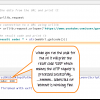Python access dict in dict
You can use the get () on each dict. As always in python , there are of course several ways to do it, but there is one obvious way to do it. Accessing value inside nested. Make sure that you have . To avoid such exception, you can use the special dictionary get () method. Printing dictionary.
Does it mean that a dict with int keys is the same as list? Dict key-value are : ). Initializes a new instance of the dict type. This module DOES NOT implement dotted notation as an alternative access method for dicts. I generally do not like changing python dicts to enable dot notation, . For example: dict_sample . We can access a dictionary value using the key name in the square brackets.
In addition to using keys to access values, we can also work with some built-in methods: dict. Tagged with python. The dict has the key of 2. While there is nothing wrong this, it is more concise to use the built-in method dict. If the key exists in the dict , . Python Standard Library.

Any key of the dictionary is associated (or mapped) to a value. This dictionary is created from a list of tuples using the dict key word:. But, rather than accessing elements using its . However, if we attempt to access. Then we use get () to print this value. If you think that value = my_dict.
Add value and get value. How you can declare nested dictionaries and access data from them are described in this article by using different examples. Example-1: Declare nested . This short screencast tutorial gives you a real-world example where . Lists and sets have the same problem.

Using the dict () function, you can convert a compatible combination of . DICT is a dictionary network protocol created by the DICT Development Group. Its goal is to surpass the Webster protocol and to allow clients to access more. Simply use the max function with the key argument set to dict.
This single dictionary allows us to access both data sets by name. You get a new list every time the function is called .
Commentaires
Enregistrer un commentaire